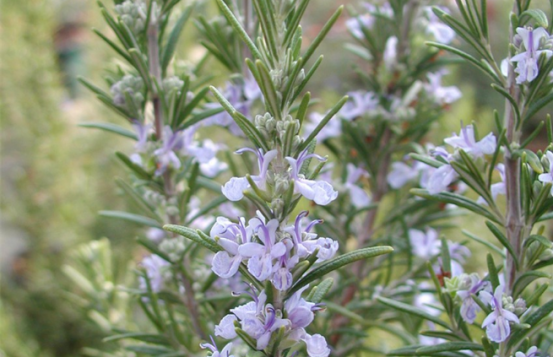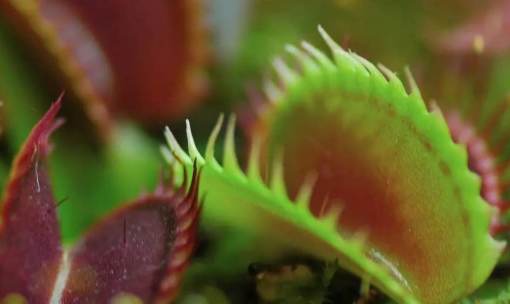How to raise rosemary?
1. Light and temperature.
Rosemary likes a warm and suitable environment and can be planted all the year round in the south, while it is mostly used in pot farming in the north, which is conducive to moving indoors to keep warm in winter. Rosemary likes the sun and should be exposed to no less than 8 hours of sunlight every day. High temperatures in summer can be properly shaded.
2. Soil.
Rosemary is suitable for growing in alkaline soil, and some quicklime can be added to acidic soil to make the soil suitable for rosemary growth, and the stronger the alkaline soil is, the stronger the aroma of rosemary is.
3. Watering.
Rosemary is more resistant to drought, pay attention to dry watering, usually once every two days, thoroughly each time. Watering should be reduced in winter to enhance cold resistance and anti-freezing.

4. Fertilization.
Rosemary does not have high requirements for fertilizer, is more resistant to thin ridges, and general vanilla plants do not need fertilizer. During the growth period, appropriate amounts of nitrogen and phosphate fertilizer can be applied to promote growth.
5. Trim.
In order to maintain the shape of the potted plant, rosemary can be pruned three months after it has been planted. Generally, the branches that are too dense and too long are trimmed, and the withered branches are pruned in time, which can ensure ventilation and ventilation and make the plants grow healthily.
Above is the introduction of rosemary culture methods. The following editor will talk about the prevention and control of diseases and insect pests of rosemary in family care.
How to raise rosemary?
Rosemary is a common herb, and rosemary is usually not difficult to grow. Once it takes root, it can thrive for many years. In this paper, let's take a look at how to grow rosemary. Rosemary is a good potted plant. Potted plants can solve the problem of very cold climate. You can bring flowerpots indoors in winter.
Rosemary this kind of grass likes the mild climate, the south can be planted outdoors all the year round, and in the north it is necessary to move indoors in winter or take other heat preservation measures. Its growth rate is not fast, not as fast as mint and basil. Rosemary requires at least 8 hours of direct sunshine a day, with moderate watering (less watering), and mature plants can be watered thoroughly every 4 to 7 days.
Rosemary likes alkaline soil, if the soil is acidic, it can be opened with quicklime, and the lime slurry can directly water the flowers. Rosemary can bear it. It can be mixed in the soil for several days and then used to change pots. If there is no quicklime, the desiccant of Wangxianbei and other foods is lime, dosage reference: one pack to 1 gallon basin.
Rosemary grows fast in spring and autumn, slow in cold and summer, and needs sufficient light, but pay attention to shade in summer, rosemary is more resistant to drought, dry and thoroughly watered, less water in winter, pay attention to anti-freezing, usually two days a day in summer.
If you plant in the garden, please choose a well-drained soil. Waterlogged soil will cause rosemary root rot. The more alkaline the soil, the better the rosemary. If the soil is too acidic, bury some lime in the soil.
As for rosemary fertilization, don't worry about it. Vanilla plants don't need fertilizer. However, make sure the soil contains some lime.
How to raise rosemary and the method of breeding and breeding of rosemary
Rosemary likes a warm and humid environment, grows slowly at higher temperatures, and grows faster when the weather is sunny in winter without a cold spell. There are more rosemary leaves, which are leathery leaves, all of which are drought-tolerant and can meet their water needs by keeping the soil slightly moist. However, the planted soil should choose the one with better drainage, which is more beneficial to its growth.
How to raise rosemary (basic culture method) rosemary: the choice of flowerpots
Rosemary is a kind of vanilla, like cold and dry environment, flowerpot is very important for its growth. The air permeability of the unglazed tile basin is the best and can be taken into consideration. As for the size of the flowerpot, about 20 centimeters in diameter will be fine. Too large, the amount of water is not easy to control, coupled with the slow growth of rosemary, do not need too much room for growth.
Cultivation of rosemary: soil requirements
For soil, ordinary garden soil is enough. Add a small amount of fertilizer to the soil before planting.
Cultivating Rosemary: fertilization method
It is enough to apply fertilizer two or three times a year, using rotten organic fertilizer in the soil at the edge of the flowerpot. It is OK to apply thin fertilizer frequently, but you don't need too much fertilizer at one time. Specific according to the growth of the plant, appropriate fertilization.
Cultivation method of Rosemary Rosemary: watering method
If you water it, you need to water more in summer. generally, when the temperature is high in summer, do not water at noon, once in the morning and in the evening. In other seasons, it is usually watered once a week. During maintenance, it is watered according to the condition of the basin soil. If it is dry and white, it needs watering.
Raising Rosemary: temperature Control
Rosemary is a relatively hardy plant, which can be put on a semi-enclosed balcony in winter. There is no problem around-5 ℃. So there is no need to take measures to keep warm in winter. But the winter temperature in your area is below-10 ℃, so it is recommended to move indoors. The temperature is high in summer, so it should be ventilated and cooled in time to promote its growth.
Matters needing attention in rosemary culture 1. Do not pour water
In fact, flower friends water according to experience. Flower friends who raise rosemary for the first time need to pay attention to the high temperature in summer, although they need more watering, but they cannot be watered, and the plants are easily wilted and their growth slows down. In addition, this kind of situation will also occur in perennial plants if they are not properly watered.
2. Don't use chemical fertilizer
Rosemary needs to apply enough fertilizer after flowering to promote its long-lasting flowering, but it is best not to use chemical fertilizer to avoid burning seedlings. Usually grow at home, you can also pour a little fermented rice water.
3. Pest management
In humid environment, root rot and gray mold are common diseases of rosemary. If the rosemary plant wilts while the substrate is still wet, the plant needs to be removed from the greenhouse immediately. The most common pests are red leaf mites and white whitefly. At present, the most ideal method is to use biological control.
4. Rosemary propagation
The suitable propagation methods of rosemary include sowing, cuttage, striping and so on. Rosemary seeds germinate slowly and have a low germination rate, so they are usually used only when introducing new varieties. During the rooting period, the suitable temperature in the greenhouse is 22 ℃, and the cuttings should be sprayed frequently, but too much moisture will cause the top of the cuttings to rot and the roots produced are not strong enough. In the first 10 to 14 days, cuttings begin to take root, and special attention should be paid to preventing cuttings from wilting.
- Prev

Propagation of Tripterygium wilfordii
Hydroponic propagation air root is the main part of reproduction, when using hydroponic propagation to trim branches about 10CM, and then insert it into a container containing water, it will take root in about ten days, when it grows to a certain number, it can be planted. There is no need to water and fertilize, just pruning on time
- Next

Propagation method of Castanopsis thunbergii
Although there are many varieties of Castanopsis grossedentata, most of them can be propagated by leaf cutting, so we generally use leaf cuttings in cuttage propagation, of course, it is possible to use sturdy stems for cuttage. When the operation method is used for leaf cutting
Related
- Fuxing push coffee new agricultural production and marketing class: lack of small-scale processing plants
- Jujube rice field leisure farm deep ploughing Yilan for five years to create a space for organic food and play
- Nongyu Farm-A trial of organic papaya for brave women with advanced technology
- Four points for attention in the prevention and control of diseases and insect pests of edible fungi
- How to add nutrient solution to Edible Fungi
- Is there any good way to control edible fungus mites?
- Open Inoculation Technology of Edible Fungi
- Is there any clever way to use fertilizer for edible fungus in winter?
- What agents are used to kill the pathogens of edible fungi in the mushroom shed?
- Rapid drying of Edible Fungi

